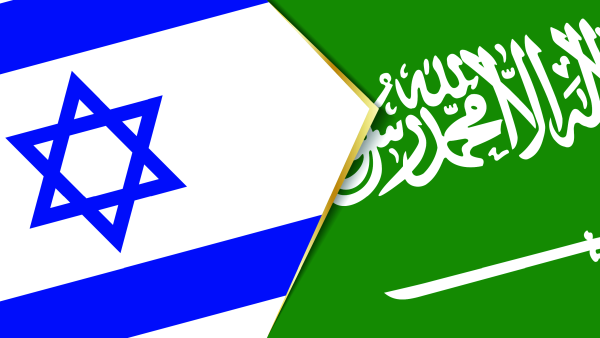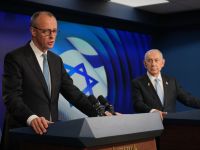Despite growing talks of soon-to-be official diplomatic ties between Israel and several GCC countries, mostly Saudi Arabia and the United Arab Emirates, the two countries seem to take decisions perceived by some commentators as confusing.
حياتي في خطر أتمنى أستطيع بعد قليل توجيه رسالة لسيدي محمد بن سلمان ومعالي النائب العام لتوفير الحماية لي.
— #عبدالحميد الغبين (@Abdullhameeds) June 15, 2020
يشهد الله لم أكن انوي التحدث عن الموضوع إلا أمام الجهات القضائية والمتخصصة ولكن لم يترك لي خيار آخر أمام أشخاص متنفذين.@bip_ksa
Translation: "My life is in danger. I hope to be able to send a message to his highness Mohammad bin Salman and his excellency the Public Prosecutor so they provide me with protection. God knows I had no intentions to publicly speak about this issue except in legal settings, but those in power left me with no other choices."
Last Monday, Saudi journalist and political analyst Abdul Hameed Al-Ghabin took to Twitter to protest hiding his personal data from government's records, a move many linked to his political stances supporting full diplomatic ties and cooperation with Israel, a country he thinks "can be a strong ally to Saudi Arabia."
Al-Ghabin, who had published an op-ed last December entitled "The road between Saudi Arabia and Israel passes through Al-Aqsa" in The Times of Israel, has urged the Saudi Crown Prince for protection, saying that "his life is threatened."
The road between Saudi Arabia and Israel passes through Al-Aqsa https://t.co/Jk3yjnmdd5
— The Times of Israel (@TimesofIsrael) December 1, 2019
Changes in Al-Ghabin's legal documents in his country came only a few days after he made a TV appearance, in which he called on Palestinians to accept Trump's peace plan as soon as possible as their final and only solution.
خلي نتنياهو يحميك
— H.Alodetalla (@drboss1979) June 15, 2020
Translation: "Maybe Netanyahu should protect you"
In the UAE, another GCC country whose relations with Israel have been speculated for a while now, the Crown Prince of the Emirate of Abu Dhabi expressed strong condemnation of Israeli plans to annex a large part of the West Bank, days after the Emirate Foreign Minister Anwar Gargash stated that cooperation between his country and Israel is very possible.
These mixed signals can either point at a strategy of maintaining secrecy in terms of relations with Israel so as not to anger the public largely against the move, or as a change in political stance, one that is imposed by Israeli insistence on carrying on with plans to annex 30% of the West Bank and the Jordan Valley.
I assured King Abdullah in our phone conversation of UAE's full solidarity with Jordan & our categorical rejection of accepting Israel's illegal annexation of Palestinian lands. We are working with our Arab brethren & the international community against this illegal move.
— محمد بن زايد (@MohamedBinZayed) June 17, 2020
UAE Foreign Minister Dr. Anwar Gargash says Abu Dhabi, Israel 'can actually work together'https://t.co/yX59PqUMas
— i24NEWS English (@i24NEWS_EN) June 16, 2020







